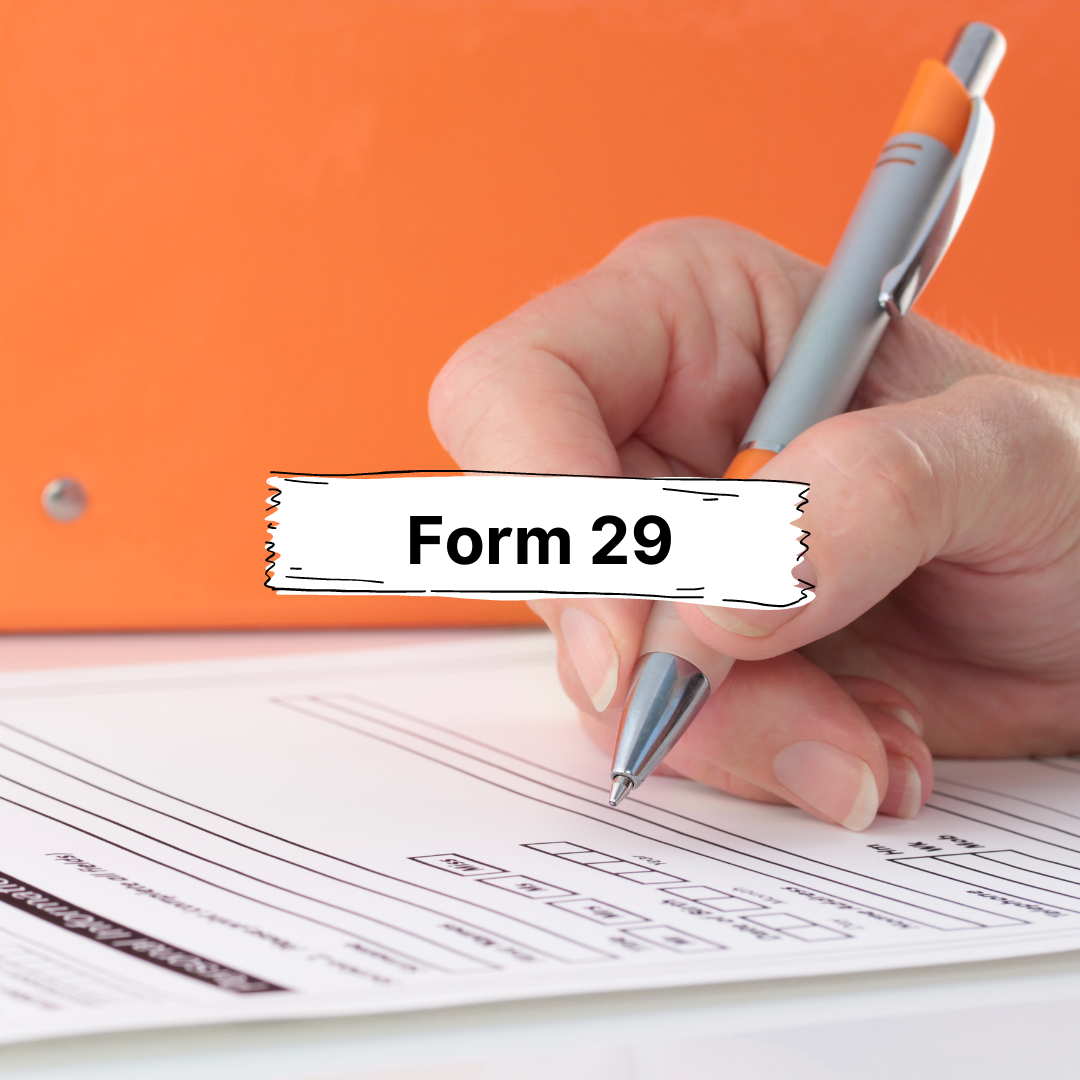Meet Ramesh. He has recently joined a prestigious manufacturing facility in Haryana. He knows that he has to fill out various compliance forms, but he doesn't understand the nuances of Form E - Register of Deductions.
What do you think he should do next?
This article elaborates on Form E - Register of Deductions for you and Ramesh.
Human Resource managers of companies and factories need to care for various compliance forms, including Form E-Register of Deductions.
Submitting Form E - Register of Deductions is mandatory as per the provisions of Rule 5 of the Punjab Shops and Commercial Establishment Rules 1958 or Act No. 15 of 1958. This Act, of which Form E-Register of Deductions is a part, applies to all shops and commercial establishments within the territory of the Haryana State in India.
In the following sections, you will find details about Form E-Register of Deductions in which the HR manager must declare the reasons for deducting employees’ wages:
- Name of the establishment
- Year
- Acts and omissions approved by the authorities
- Employee name
- Parentage
- The wage of the employee
- Wage payable
- Amount deducted
- Fault for which deductions made
- Date of deduction
- Whether employee showed cause against deductions
- Amount of deduction and purpose for which utilized
- Date of utilization
- Balance with the employer
- Signature of employee
- Signature of the employer, and
- Remarks
What is the Primary Objective of the Punjab Shops and Commercial Establishment Rules 1958 or Act No. 15 of 1958?
The primary objective of the Act is to protect employee rights. The Act has provided detailed guidelines on wage payments, terms of services, work hours, opening and closing hours, overtime benefits, rest intervals, holidays, leaves, closed days, work conditions, maternity leave and benefits, records maintenance, etc.
What is Form E - Register of Deductions?
Form E-Register of Deductions is one among the eight (8) compliance forms required to be submitted by the HR managers of establishments registered under the Punjab Shops and Commercial Establishment Rules 1958 or Act No. 15 of 1958.
If the employer hasn’t deducted any wage from any employee’s salary, the HR manager can keep the Form E-Register of Deductions as NIL.

Who Are Exempted From Submitting Form E-Register of Deductions?
The provisions of the Punjab Shops and Commercial Establishment Rules 1958 or Act No. 15 of 1958, of which Form E-Register of Deductions, does not apply to the following establishments:
- Central or State Governments offices
- the Reserve Bank of India (RBI)
- Railway administration
- Any local authority
- Air service
- Water transport service
- Tramway
- Postal service
- Telephone service
- offices of lawyers
- any person whose employment hours are governed by or under the Factories Act, 1947
Hence, Form E-Register of Deductions applies to all other establishments not mentioned in the above sections.
Form E-Register of Deductions - Detailed Explanation
Here is a detailed explanation of Form E-Register of Deductions under the provisions of the Punjab Shops and Commercial Establishment Rules 1958 or Act No. 15 of 1958:
1. Name of the establishment
Before submitting Form E-Register of Deductions, you have to register your establishment with the appropriate authority set up by the government of Haryana. The name of the establishment entered here must match with the name entered in the registration form.
2. Year
Mention the year for which you are compiling and filing Form E-Register of Deductions.
3. Acts and omissions approved by the authorities
Section 8 in The Payment of Wages Act, 1936 describes the various acts and omissions approved by the authorities.
4. Serial No.
This is the first section in Form E-Register of Deductions. Enter the serial number of the entries.
5. Name of employee
This is section-2 in Form E-Register of Deductions. You need to enter the names of employees in this form whose wages you have deducted.
5. Parentage
This is section-3 in Form E-Register of Deductions. Enter the parents’ details of the employees whose wages you have deducted.
6. Wage
This is section-4 in Form E-Register of Deductions. Enter the total wage expected by the employee during the period for which you are entering the information.
7. Wages Payable
This is section-5 in Form E-Register of Deductions. Enter the wages payable to the employee mentioned in section-2 after factoring in all deductions.
8. Amount Deducted
This is section-6 in Form E-Register of Deductions. You need to enter the total amount deducted from an employee’s yearly wage. Rule No. 17 of the Punjab Shops and Commercial Establishment Rules 1958 specifies that “The wages of an employee shall be paid to him without deductions of any kind except those authorized by or under the Payment of Wages Act, 1936, in so far as such deductions are applicable to the employee and in such manner, to such extent and to subject to such conditions as are specified in that Act.” You must also know Rule No. 10 (Close Day), 11 (Employees’ off day in a week), 12 (Holidays), 14 (Leave), and 15 (Wages for close days and during leave period) of the Punjab Shops and Commercial Establishment Rules 1958 before calculating the deductions.
9. Fault for which deductions made
This is section-7 in Form E-Register of Deductions. Rule no. 17 of the Punjab Shops and Commercial Establishment Rules 1958 applies here as well. Ensure that the deductions have been made after abiding by the rules mentioned in the Act.
10. Date of deduction
This is section-8 in Form E-Register of Deductions. Mention the dates on which the deductions took place.
11. Whether employee showed cause against deductions
This is section-9 in Form E-Register of Deductions. Ensure that the employees get adequate time and opportunities to appeal against the deductions made by the employer. Mention if the employee showed any reasons for not deducting the wage payable.
12. Amount of deduction and purpose for which utilized
This is section-10 in Form E-Register of Deductions. Here, you have to mention the net amount deducted for each employee and how you have used the amount.
13. Date of utilization
This is section-11 in Form E-Register of Deductions. Here, you need to mention how you used the amount deducted from the employee’s wage and when you used the amount.
14. Balance with the employer
This is section-12 in Form E-Register of Deductions. Here, you have to mention the balance amount available to you.
15. Signature of employee
This is section-13 in Form E-Register of Deductions. Ask the employee to sign this space after checking all details entered by you.
16. Signature of employer
This is section-14 in Form E-Register of Deductions. The HR manager needs to put his/ her signature in this space.
17. Remarks
This is section-15 in Form E-Register of Deductions. Enter any remarks if needed.
Conclusion
Form E-Register of Deductions is a mandatory exercise for all registered shops and commercial establishments as per the provisions of Punjab Shops and Commercial Establishment Rules 1958 or Act No. 15 of 1958.
Deskera can be your trusted partner for everything in CRM, online invoicing, accounting, payroll software, and HRIS. Deskera’s all-in-one cloud-based accounting software is all you need to run your business efficiently. Needless to say, when all information is readily available at your fingertips, meeting compliance norms, such as Form E-Register of Deductions, can be as easy as pie.
How Can Deskera Payroll Help?
Payroll management and employee management are integral to any organization. If you are looking for a holistic and automated tool to manage payroll, employees, expenses, contractor management, Deskera People could be the apt solution.
Process your payroll now with Deskera People
Key Takeaways
- Human Resource managers of companies and factories need to care for various compliance forms, including Form E-Register of Deductions
- Submitting Form E - Register of Deductions is mandatory as per the provisions of Rule 5 of the Punjab Shops and Commercial Establishment Rules 1958 or Act No. 15 of 1958
- If the employer hasn’t deducted any wage from any employee’s salary, the HR manager can keep the Form E-Register of Deductions as NIL
Related Articles













